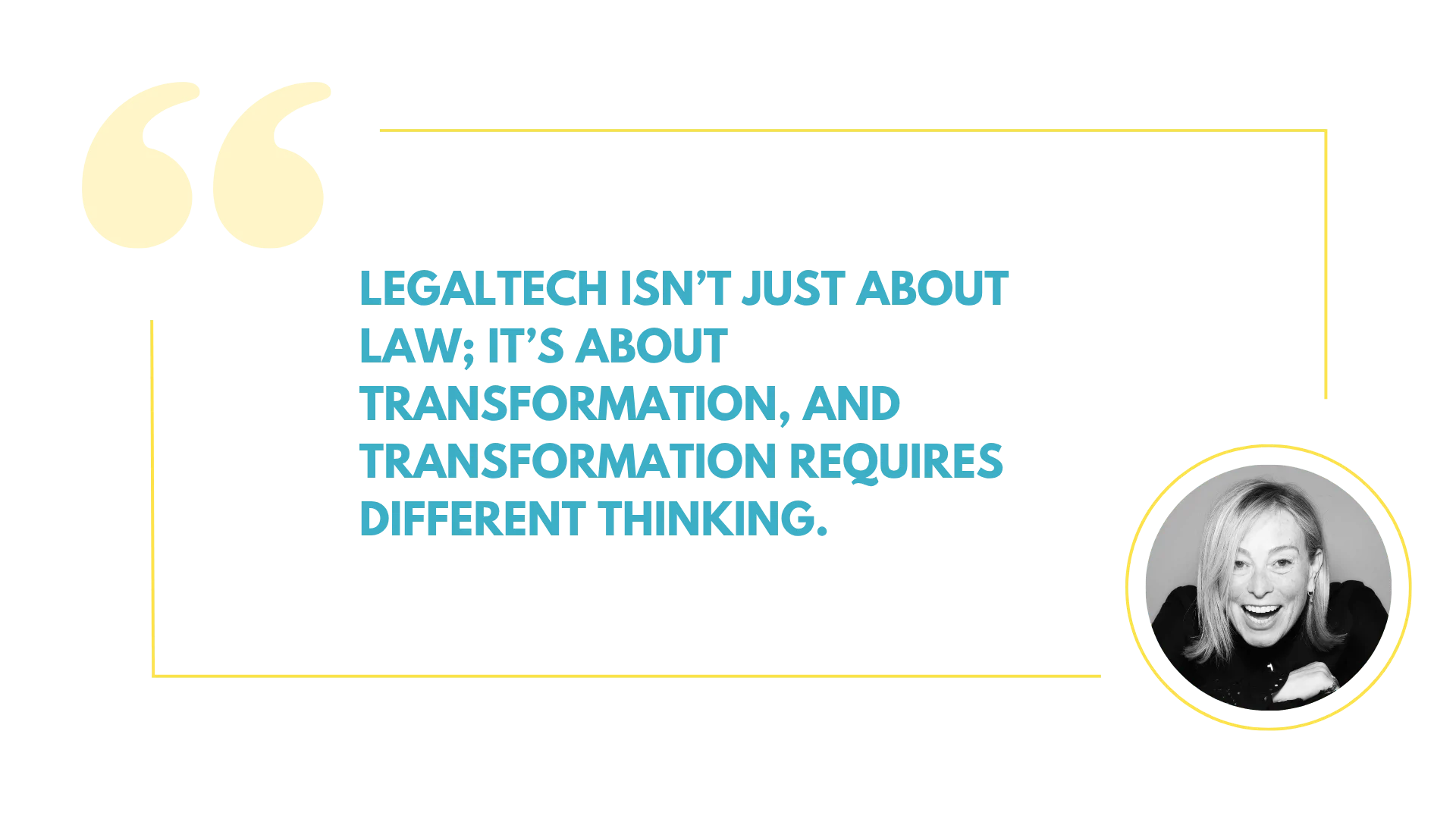LegalTech Diaries x Melina Jacovou, Propel's Founder: Rethinking Talent in a Rapidly Evolving Legal Market
16 Jun, 20254-5 minsAs published in Volume 8 of LegalTechDiaries, Mel gets candid about the real reasons behind ...

As published in Volume 8 of LegalTechDiaries, Mel gets candid about the real reasons behind LegalTech’s hiring challenges – and how to fix them.
1. Global talent shortages are becoming more persistent and prevalent, which is no different in the legal profession. What are the root causes of this situation?
The legal industry is facing a talent shortage, but not because there’s a lack of smart, capable people. The issue is that the demand has outgrown the supply of professionals who tick every traditional box. LegalTech, in particular, is evolving at speed. As a result, companies need people who understand regulation, compliance, digital infrastructure and product, but the search often starts and ends with those who’ve studied law or worked in legal practice, which narrows the field too much.
It's also worth recognising that LegalTech is still developing as a sector. Not enough people yet have a background that bridges both legal and tech fluently. The overlap is small, and it’ll take time to grow organically. In the meantime, businesses need to think more broadly about where talent can come from and how much can be taught vs. bought.
LegalTech isn’t just about law; it’s about transformation, and transformation requires different thinking. Many of the skills needed – in cybersecurity, product, data, operations – already exist in other industries like SaaS, FinTech and RegTech. The challenge is that LegalTech is still perceived as niche and hard to access unless you come from within, which just creates unnecessary barriers.
To really solve the talent shortage, the industry needs to start thinking differently about where value comes from. Legal experience is valuable, but it’s not the only thing that matters.

2. Have you spotted any issues specific to the legal industry that could contribute to talent shortages?
Definitely. First, there’s a heavy emphasis on hiring people who’ve already worked in the legal sector. While that makes sense for certain roles – especially when selling into big law – it can be limiting. LegalTech companies often want someone who already has legal connections and the ability to speak the language from day one. That’s a tough ask when you’re also expecting deep tech fluency, commercial savvy and startup pace.
We fully understand why that’s the case – LegalTech sits in a highly regulated space, and the products themselves are often complex. It makes total sense that companies want people who can grasp both the legal context and the tech quickly. But again, this hybrid profile is rare, and waiting for it often means missing out on strong candidates from tech-first backgrounds who could absolutely thrive in the space.
Another factor is mobility. Because the industry is so interconnected, and many businesses want specific LegalTech experience rather than just SaaS experience, moving between companies can be complicated, with non-competes, client conflicts and overlapping networks often stopping great candidates from making career moves, even if they want to.
From a talent perspective, many LegalTech companies can feel quite similar. So when you’re trying to tempt someone to move, they really need to believe in the product, how it impacts the end user, and where the business is going. That’s why having a clear, well-defined ICP is no longer a ‘nice-to-have’. It’s essential to hiring and retaining the right people.
Then there’s the learning curve. LegalTech has its jargon and nuance, which can be intimidating for people coming from outside the legal world. But the truth is, much of the work, especially in product, growth and operations, doesn’t require a law degree. It requires the ability to understand problems, map processes, and collaborate across teams.
Lastly, the legal industry has been slower to adopt new ways of working, so while they’re still catching up in building modern, flexible teams, it creates a talent gap. If the industry wants to move forward, it has to start removing some of these internal barriers. That means being more open to diverse backgrounds and investing in onboarding to bring in people who can grow in the space, not just those who already know the ropes.

3. There’s a lot of uncertainty regarding skills in a more digitised environment. What skills should legal professionals prioritise learning, and what should legal leaders prioritise in their searches and upskilling endeavours?
For legal professionals, it’s all about becoming fluent in the tools and technologies that are reshaping the industry. That includes everything from contract automation and e-discovery to AI-driven analysis and collaborative platforms. But it’s not just about knowing how to use the tools; it’s about understanding how they fit into workflows, where they add value, and how they change the client experience.
Digital literacy is a must, but so is awareness of data security, privacy and regulatory frameworks like GDPR. With so much sensitive and confidential information being handles digitally, professionals need to be confident navigating both the risks and the opportunities.
For leaders, the priority should be shifting the mindset around hiring. Instead of waiting for unicorn candidates who’ve practised law and mastered every LegalTech system, they should be looking for smart, adaptable people with transferrable skills. Someone with a background in tech or compliance might be just as, if not more, effective in a LegalTech environment than someone with a traditional legal CV.
That’s especially true when you consider that leaders often bring their own legal know-how or have access to in-house legal teams. So, when hiring for growth, it can be smarter to bring people in with a strong tech, product or commercial lens and upskill them internally on the legal side as needed.
Upskilling should also focus on emerging areas like AI, blockchain and data ethics, as well as soft skills like cross-functional collaboration and change management. Building high-performing teams isn’t just about knowledge, it’s about mindset.
And most importantly, legal leaders need to create space for people to grow into the industry. The talent is out there, but companies need to meet it halfway. That means offering training, being flexible on backgrounds, and investing in a culture of innovation. It’s not just about finding people who understand the law – it’s about finding people who understand how to move it forward.
Keen to hear more from the Propel team on the future of LegalTech? Find us at Stand K63 at LegalTechTalk, June 26th-27th, at the InterContinental O2.
The bottom line
Hiring contractors shouldn’t create more work. With Propel, you get flexible, on-demand talent while we manage the admin behind the scenes so you can stay focused on what you do best while we take care of the rest – onboarding, contracts, compliance, and payments.
Your contractors get paid on time. You get one invoice.
Curious how we can help your team scale?



